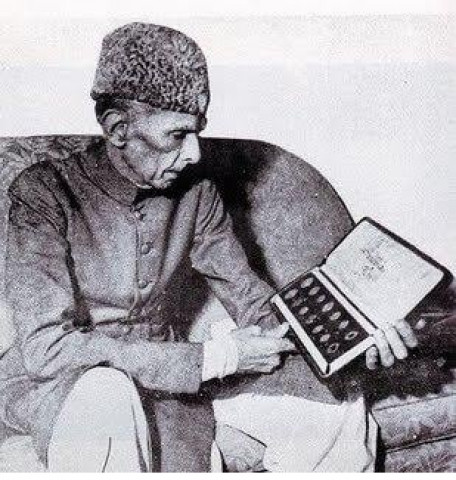As nation remembers Jinnah, speakers fear his ‘legacy’ has been forgotten
Speakers urge the youth to understand why the country came into being in the first place.

Speakers urge the youth to understand why the country came into being in the first place. PHOTO: EXPRESS/ FILE
A mural on the auditorium’s wall represented a post-Partition migration scene with hundreds of vulnerable people along with their belongings loaded on carts - perfectly aligning with the conference’s theme. The conference, highlighting the life of Quaid-e-Azam Mohammad Ali Jinnah, was organised by Baqai Medical University, keeping its tradition of commemorating the day in a similar fashion for the past eight years.
Saeeduz Zaman Siddiqui, a former chief justice of Pakistan, was the chief guest at the seminar, which among other speakers included Prof. Malahat Kalim Sherwani, the chairperson of library and information science department of Karachi University; Dost Muhammad Faizi, a former MNA of Nawaz Sharif-led Pakistan Muslim League; Hilton Pharma chairperson Sardar Yasin Malik; Quaid-e-Azam Research Institute president Lt Gen (retd) Syed Azhar Ahmed; and Syed Azfar Rizvi, the secretary of Anjuman Taraqqi-e-Urdu.
Justice Siddiqui compared the creation of Pakistan with a legal premise which was earlier pointed out by Dost Muhammad Faizi in his speech. “If a person is given land on certain conditions, his defiance to the rules invalidates the entitlement,” he said. “[Likewise], we need to recall the conditions for Pakistan’s creation as an Islamic state where principles of Islam were to be enacted.”

The former judge claimed “an Islamic system” was the basis of Pakistan as stated and explained by the founding father in various writings and speeches, which were later enacted in the form of Objective Resolution in 1949. “This debate on what system should be followed in the country should not arise,” he added.
Siddiqui quoted Jinnah from a speech on January 25, 1948, at Karachi Bar Association saying: “I could not understand a section of people who deliberately wanted to create mischief and made a propaganda that the constitution of Pakistan would not be made on the basis of Shariat.” He advised the youth to read the contents of the resolution, which, in his view, ensures the country’s survival.
Prof Sherwani, in her speech, recalled a youth convention in Islamabad where Jinnah’s biographer Stanley Wolpert was also present. “No one quoted from more relevant sources other than the Wolpert written biography,” she claimed. “This reflects the state of our subjective minds and dying reading habits in the society.”
To define the basis for Pakistan, she quoted Jinnah from his various speeches and concluded at the one delivered at the Karachi Bar Association. “No doubt there are many people who do not quite appreciate when we talk of Islam. Islam is not only a set of rituals, traditions and spiritual doctrines, Islam is also a code for every Muslim which regulates his life and his conduct even in politics and economics and the like.”
For Dr Sherwani, Jinnah’s speech at the bar aligns well with another one delivered on February 14, 1948 at the Sibi Durbar, where he said: “It is my belief that our salvation lies in following the golden rules of conduct set for us by our great law giver, the Prophet (PBUH) of Islam. Let us lay the foundation of our democracy on the basis of truly Islamic ideals and principles.”
Published in The Express Tribune, December 26th, 2012.



















COMMENTS
Comments are moderated and generally will be posted if they are on-topic and not abusive.
For more information, please see our Comments FAQ